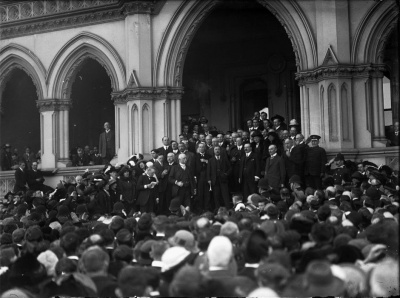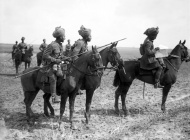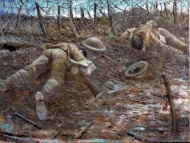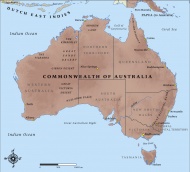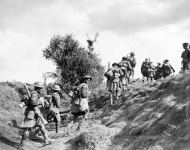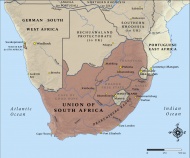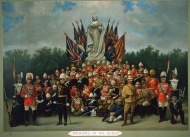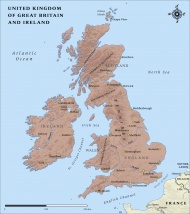Articles
British & Irish immigration, 1840-1914
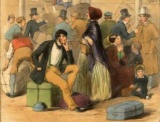
Who were the ancestors of Pākehā New Zealand? Where did they come from and what sort of people were they? These are some of the questions which this feature sets out to answer.
- Page 1 - British and Irish immigration 1840-1914Who were the ancestors of Pākehā New Zealand? Where did they come from and what sort of people were they? These are some of the questions which this feature sets out to
First World War - overview
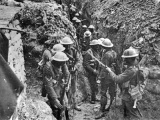
Archduke Franz Ferdinand, heir to the throne of the Austro-Hungarian Empire, and his wife Sophie were assassinated in the Bosnian city of Sarajevo. This was a key event in sparking the Great War of 1914–18.
-
Page 3 – Preparing for war
News of the outbreak of war was received in Wellington at 1 p.m. on 5 August 1914. It was announced by the governor, Lord Liverpool, on the steps of Parliament to a crowd of
-
Page 4 – New Zealand goes to war
Before the outbreak of war, Prime Minister W.F. Massey had made it clear that New Zealand’s main contribution would be supplying troops to the major theatre of conflict. But
-
Page 5 – The war at home
New Zealand played a small but useful part in the British Empire's war effort, and its essential war aim was achieved with the defeat of Germany and its allies in late 1918.
-
Page 6 – The legacy of war
The war had a major impact on constitutional arrangements within the British Empire, and it affected New Zealand's international status.
British Empire
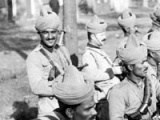
Key information and statistics about countries who fought as part of the British Empire during the First World War
-
Page 2 – Dominion of New Zealand
Facts and statistics about New Zealand during the First World War.
-
Page 3 – Commonwealth of Australia
Key information and statistics about the Commonwealth of Australia during the First World War
-
Page 4 – Dominion of Canada
Key information and statistics about Canada during the First World War
-
Page 5 – British India
Facts and statistics about India during the First World War
-
Page 6 – Dominion of Newfoundland
Key information and statistics about the Dominion of Newfoundland during the First World War
-
Page 7 – Union of South Africa
Facts and stats about South Africa and the First World War.
-
Page 8 – United Kingdom of Great Britain and Ireland
Key information and statistics about the United Kingdom of Great Britain and Ireland during the First World War
History of the Governor-General
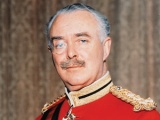
New Zealand has had a governor or (from 1917) a governor-general since 1840. The work of these men and women has reflected the constitutional and political history of New Zealand in many ways.
-
Page 5 – Splendid ornamentals
With the appointment of Lord Onslow in 1889, a new type of governor took up residence in Government House.
-
Page 6 – Regalised
The constitutional arrangements of the British Empire changed greatly between the creation of the Imperial War Cabinet in 1917 and the passing of the Statute of Westminster in
Governors and Governors-General

New Zealand has had 16 resident governors and 22 governors-general. Two early governors were called governor-in-chief.
- Page 3 - Career pathsAs the job evolved over time, so did the type of person needed to govern successfully. Between 1840 and 1853, when governors ruled personally, they were junior navy or army
Premiers and Prime Ministers
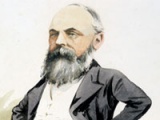
From Henry Sewell in 1856 to Chris Hipkins in 2023, New Zealand has had 41 prime ministers and premiers. Read biographies of the men and women who have held the top job, discover more about the role's political origins, and explore fascinating prime ministerial facts and trivia.
- Page 2 - Political originsOverview of the influence of the British political system in New Zealand and our move toward self-government in the 19th
Capture of German Samoa
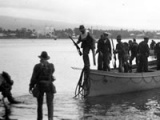
When war broke out in Europe in August 1914, Britain asked New Zealand to seize German Samoa as a ‘great and urgent Imperial service’. Although the tiny German garrison offered no opposition, at the time it was regarded as a potentially risky action.
- Page 2 - New Zealand in the PacificSamoans were not consulted when Britain, Germany and the United States agreed to partition their islands in December
Merchant marine
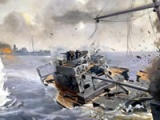
On 3 September New Zealand honours Merchant Navy Day. Here we explore the little-known but vital role played by the merchant marine during the First World War, when these civilian seafarers often found themselves in the front line of the war at sea.
- Page 2 - The merchant marine goes to warThe outbreak of war in 1914 posed special problems for New Zealand because of its dependence on sea
Parliament's culture and traditions
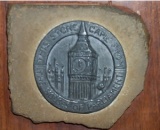
Explore Parliament's rich history and its colourful culture and traditions.
- Page 4 - Westminster traditionsMany parliaments take a lead from Britain's ancient House of Commons, and New Zealand, too, followed the traditions in the home
Related keywords
- WW1
- parliament buildings
- lord liverpool
- william massey
- joseph ward
- james allen
- police
- governor
- governor-general
- australia
- merchant marine
- shipping
- international trade
- royalty
- law
- bernard freyberg
- westminster
- clothing
- cyril newall
- government
- parliament
- bellamys
- south africa
- architecture
- indian army
- indians
- painting
- maps
- WW1 maps
- dominion of new zealand
- canada
- premiers
- prime ministers
- mike moore
- newfoundland
- gallipoli campaign
- palestine campaign
- western front
- victoria cross
- queen victoria
- british army
- battle of the somme
- egypt
- conscription
- samoa
- german samoa occupation
- international relations
- pacific peoples
- egyptian expeditionary force
- united kingdom
- irish
- WW1 home front
- casualties
- conscientious objection
- navy
- hms new zealand
- lord jellicoe
- new zealand volunteers
- cadets
- royal navy
- german navy
- league of nations
- pacifism
- national identity
- treaty of waitangi
- william hobson
- legislative council
- robert fitzroy
- george gipps
- japanese
- immigration
- immigrants
- ormond burton
-
Main image: Announcement of war with Germany, 1914
New Zealand's Governor, Lord Liverpool, outside Parliament announcing Britain's declaration of war.

